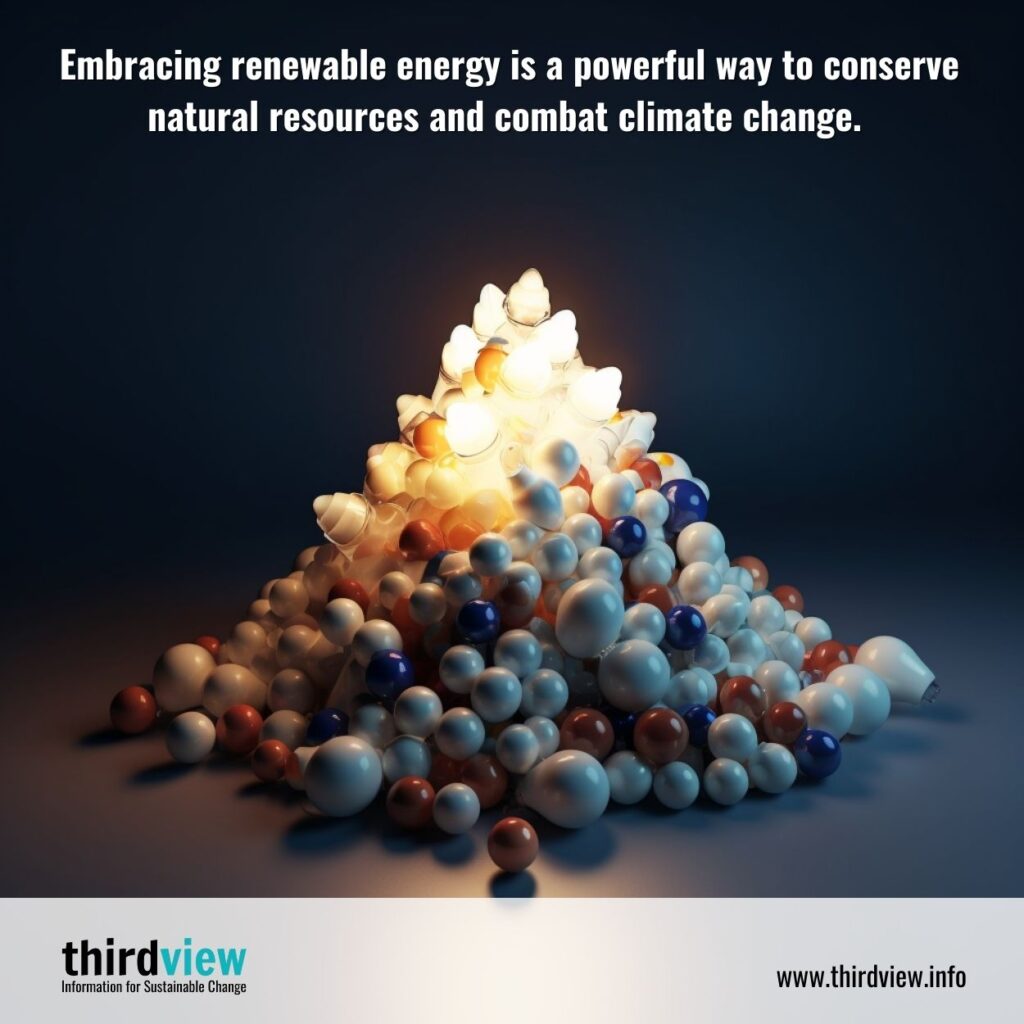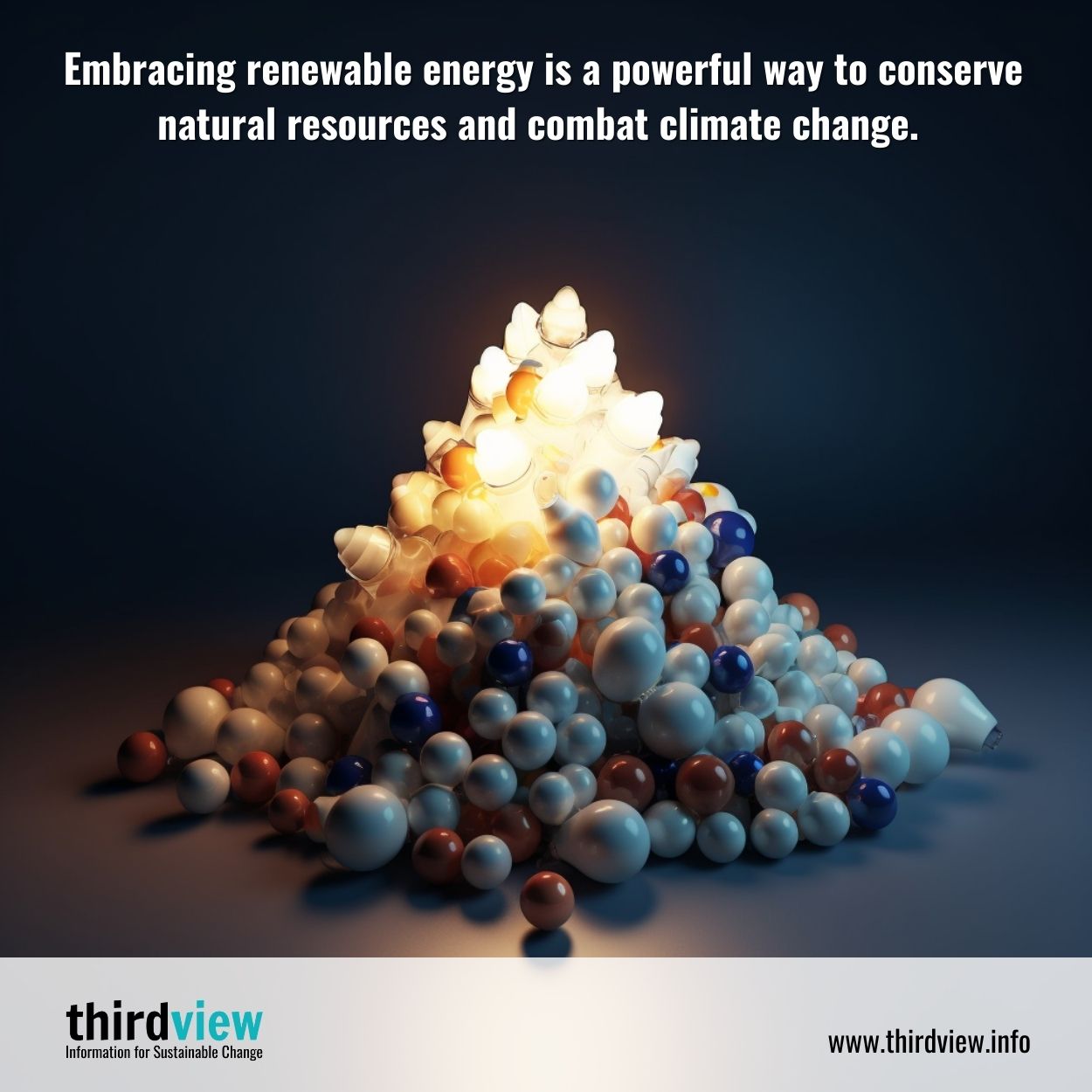As climate change becomes an increasingly urgent issue, it is critical that we look for practical solutions to conserve the Earth’s natural resources. One solution that has been gaining attention in recent years is the utilization of renewable energy sources. Renewable energy harnesses natural sources like sunlight, wind, and water to generate electricity and reduce our reliance on non-renewable resources like oil, coal, and gas. In this blog post, we will examine how renewable energy can help us conserve natural resources while also powering our homes, businesses, and communities.
Reducing Greenhouse Gas Emissions
One of the most significant ways renewable energy is helping to conserve natural resources is by reducing greenhouse gas emissions. Fossil fuels emit large amounts of carbon dioxide and other pollutants into the atmosphere, contributing to global warming and climate change. Renewables like solar and wind power, on the other hand, emit little to no greenhouse gases. By transitioning to renewable energy, we can drastically reduce our carbon footprint and help protect the environment.
Preserving Water Resources
Conventional power plants, particularly those fuelled by coal and gas, consume huge amounts of water to generate electricity. This creates significant strain on water resources, particularly in regions where water is already scarce. By contrast, renewable energy sources like wind and solar power require very little water. In fact, some solar panels can even be cleaned using rainwater, reducing the need for additional water resources.
Controlling Land Use
Extracting fossil fuels and building conventional power plants often require vast amounts of land, contributing to deforestation and habitat loss. By contrast, renewable energy systems like solar panels can be installed on existing structures like rooftops, reducing the need for additional land use. Wind turbines can also be installed on land that is already being used for agriculture or other purposes, minimizing the environmental impact.
Reducing Waste and Pollution
Non-renewable energy sources like coal and oil produce large amounts of waste and pollution throughout their lifecycle. From mining and extraction to transportation and refining, these processes generate significant environmental harm. Renewables, on the other hand, produce far less waste and pollution, meaning they are better for the environment and human health alike.
Local Economic Benefits
Beyond the environmental benefits, renewable energy can also provide significant economic benefits at the local level. By generating electricity locally, communities can reduce their dependence on external sources of energy. This can create new jobs and stimulate economic growth while also reducing the overall cost of energy for communities. It is a win-win solution that can create long-term benefits for both the environment and the people who depend on it.
Renewable energy is a vital tool for conserving our natural resources and protecting our planet for future generations. By reducing greenhouse gas emissions, preserving water resources, controlling land use, reducing waste and pollution, and providing local economic benefits, renewable energy holds enormous potential to help us achieve a sustainable future. As individuals, communities, and nations, it is up to us to embrace renewable energy and make the most of this opportunity for positive change. Let us act today to secure a brighter tomorrow.


